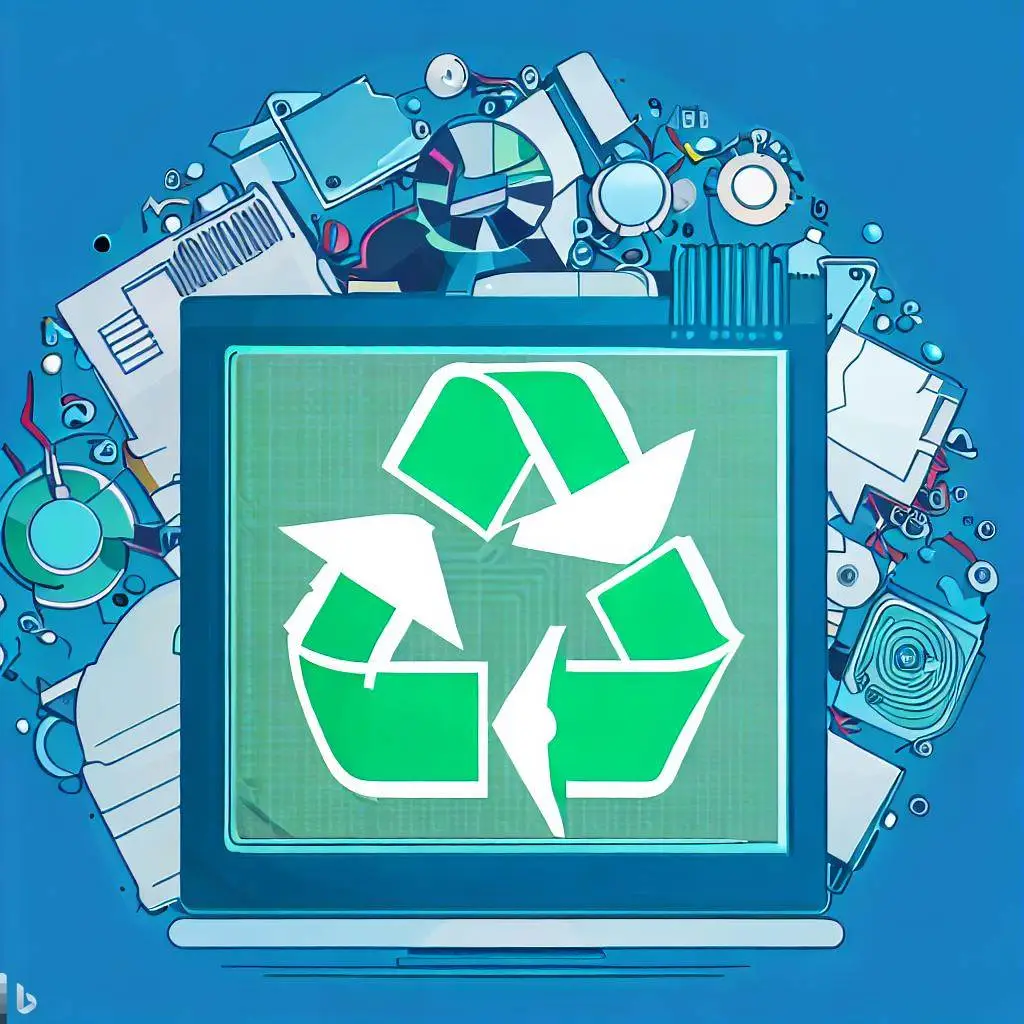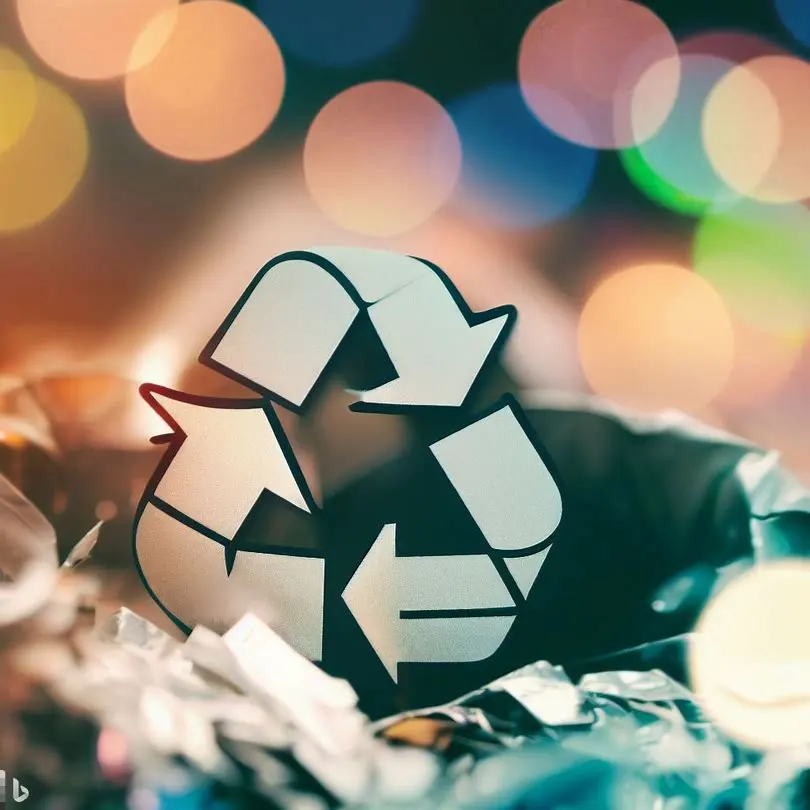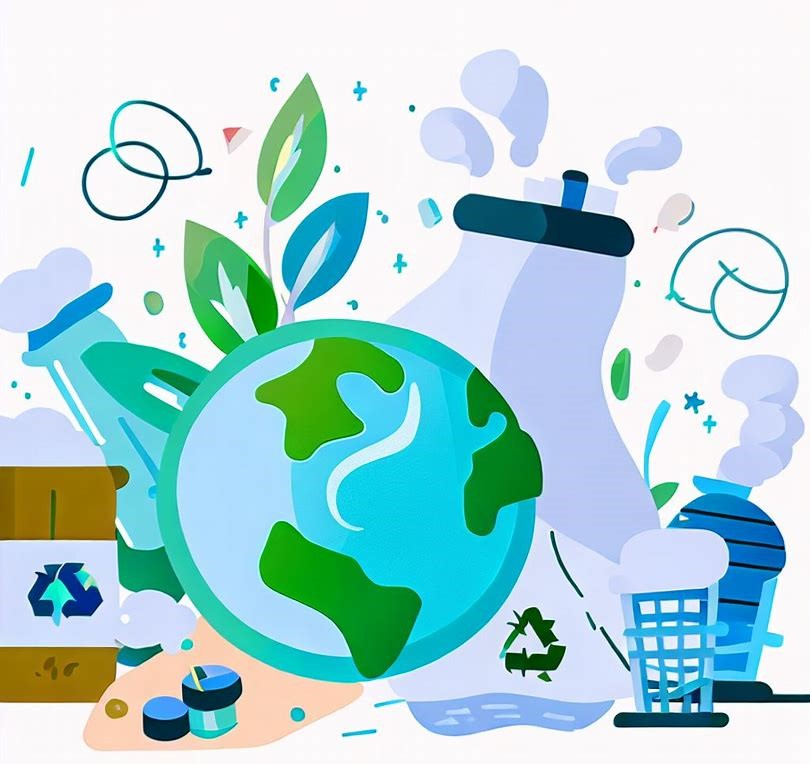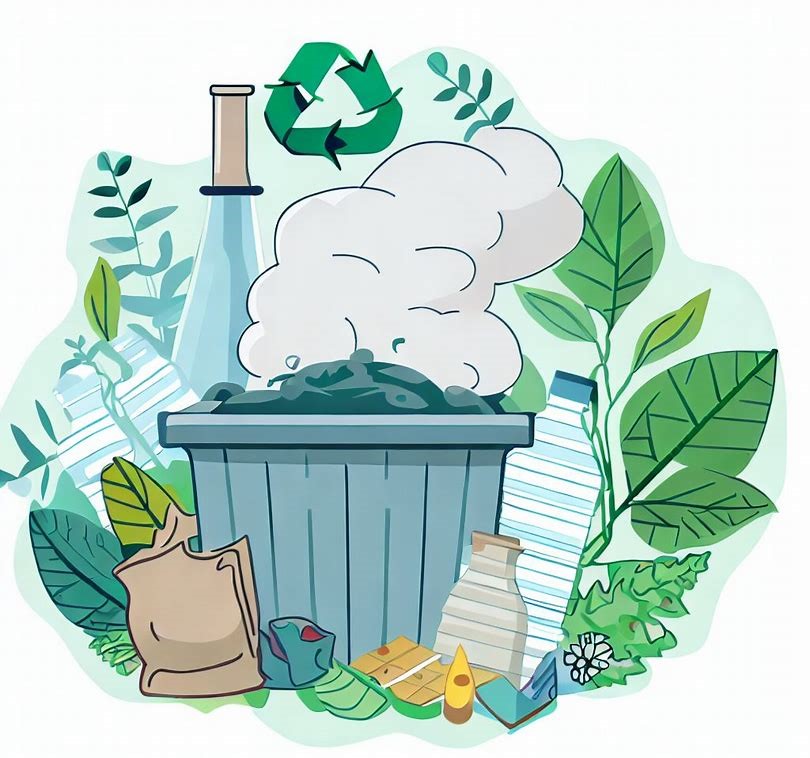Swann Rubbish Removals are professionals who play a vital role in rubbish removal, recycling, junk removal and waste management, contributing to a clean and healthy environment.
They are responsible for collecting, transporting, and disposing of various types of waste from households, businesses, and construction sites while adhering to local regulations. In Perth, Swann Rubbish is a leading rubbish removalist dedicated to providing top-notch waste management services at affordable prices.
With their professional team and customer-centric approach, Swann Rubbish is an ideal choice for both residential and commercial waste disposal needs. If you need a rubbish removalist now contact Swann Rubbish at 041 443 4257.

Kanne Smith is the founder and operator of Swann Rubbish Removal, a waste management and rubbish removal company in Perth Western Australia.
Let’s talk Rubbish!
Interesting Facts About Rubbish Removal in Perth
Perth the capital city of Western Australia, boasts an extensive cleaning and maintenance program. With cleaning operations that span 20 hours a day seven days a week the City of Perth employs 59 cleaning staff dedicated to sanitation, street cleaning, and graffiti removal. Every week the city empties 30,000 bins and removes, on average, 200 tonnes of bulk rubbish from street verges annually. Approximately 12,900 square meters of graffiti are removed from city buildings and infrastructure each year.
To keep roads and footpaths clean, the City of Perth deploys seven street sweepers. The CBD and Northbridge roads and footpaths are swept seven days per week, while East Perth and West Perth roads are swept twice a week and footpaths five days a week. Broadway/Hampden Road is swept twice a week, with increased service to address seasonal fruit drop. A general washdown of Northbridge and the CBD occurs seven days a week across 11 shifts (day and night), with CMAR pressure cleaners used daily to remove oil, dirt, grime, and organic material.
The City of Perth also offers a bi-annual residential verge collection for residents, with collections typically occurring in March and September each year. This service, included in residential rates, comprises weekly 240L landfill/general waste and comingled recycling bin collections, as well as a fortnightly 240L green waste recycling bin for Crawley and Nedlands, with plans to expand the service area as demand increases.
Additionally, the City of Perth has installed a Refuse Collection Device (RCD) at Claisebrook Cove to collect litter. The RCD, designed by Cleanamarina, a West Australian company, uses wind and tide to trap floating litter, with one-way float-gates allowing litter in but not out. The RCD, on trial for 12 months starting in April 2022, will be emptied regularly by City of Perth staff, with as much litter as possible being recycled. The analysis of collected litter will inform strategies for preventing litter at its source and will be recorded using the Australian Litter Measure (AusLM), a new methodology for measuring litter.
Types of Rubbish Removal Services in Perth
1. Residential Rubbish Removal Services in Perth
Residential rubbish removal services cater to households and their specific waste management needs. These services cover the collection and disposal of various types of waste including:
- General Waste: This category includes everyday household waste, such as food scraps, packaging and non-recyclable items.
- Green Waste: Green waste encompasses organic materials generated from gardening and landscaping activities such as grass clippings, branches, leaves and small tree stumps.
- Bulky Items: Bulky items are large heavy objects that are difficult to dispose of through regular waste collection services. These items include furniture, appliances, mattresses and other oversized items.
2. Commercial Rubbish Removal Services in Perth
- General Waste: Similar to residential waste, commercial general waste includes items like food scraps, packaging materials, and non-recyclable waste generated in a commercial setting.
- Recyclables: Commercial waste also includes recyclable materials such as paper, cardboard, plastics, glass, and metal. Proper recycling reduces the amount of waste sent to landfills and conserves natural resources.
- Hazardous Materials: Some commercial establishments generate hazardous waste, which requires special handling and disposal. This can include chemicals, solvents, and batteries, among other potentially harmful substances.
Commercial rubbish removal services help businesses maintain a clean and safe working environment, comply with waste disposal regulations, and reduce their environmental footprint.
3. Construction and Demolition Waste Removal Services in Perth
Construction and demolition waste removal services are designed to handle waste generated during construction, renovation or demolition projects. This waste can include:
- Concrete and Bricks – Large quantities of concrete and bricks are generated during construction and demolition projects. These materials can be crushed and recycled for use in new construction projects.
- Timber – Waste timber can be processed into wood chips, mulch or biomass fuel depending on its quality and condition.
- Metals – Scrap metal such as steel and copper can be recycled and used to manufacture new products.
Construction and demolition waste removal services ensure that waste materials are properly disposed of or recycled reducing the environmental impact of these projects and conserving resources. Check out the top 10 ways to dispose of Home Renovation Rubbish in Perth.
4. Green Waste Removal Services in Perth
Green waste removal services focus on collecting and disposing of green waste, including grass clippings, branches, leaves, and other organic materials. These services help maintain the cleanliness and appearance of residential and commercial properties while promoting responsible waste management practices. Green waste can be composted or turned into mulch, providing valuable nutrients to gardens and landscapes.
5. Hazardous Waste Removal Services in Perth
Hazardous waste removal services specialize in the collection and safe disposal of hazardous waste materials. These services handle potentially harmful substances such as:
- Chemicals: Industrial chemicals, solvents, and other dangerous materials require careful handling and disposal to prevent harm to the environment and public health.
- Asbestos: Asbestos, a hazardous material found in some older buildings, requires proper removal and disposal to minimize the risk of exposure and related health issues.
- Medical Waste: Medical waste, including sharps,contaminated materials, and pharmaceuticals, must be disposed of safely to prevent the spread of infections and contamination.
- Electronic Waste (e-waste): E-waste includes electronic devices such as computers, TVs, mobile phones, and other gadgets that contain hazardous materials like lead, mercury, and cadmium. These materials need to be properly disposed of to prevent environmental contamination and potential health risks.
Hazardous waste removal services in Perth ensure that these dangerous materials are collected, transported, and disposed of safely and in compliance with relevant regulations, protecting both the environment and the community.
6. Electronic Waste Removal Services in Perth

E-Waste removal services are dedicated to collecting and recycling electronic waste which is rapidly becoming one of the fastest growing waste streams globally. Electronic devices contain valuable materials such as precious metals that can be extracted and reused in new products. Proper E Waste recycling helps conserve resources reduce landfill waste and prevent hazardous materials from contaminating the environment.
Electronic Waste removal services in Perth work with certified recycling facilities to ensure electronic waste is properly processed and valuable components are recovered. By using E Waste removal services individuals and businesses contribute to a more sustainable future by reducing the environmental impact of electronic waste.
Perth offers a wide range of rubbish removal services that cater to various waste management needs for residential, commercial, construction and other specialized sectors. By using these services individuals and businesses in Perth can contribute to a cleaner, greener and more sustainable environment. Proper waste management practices not only help preserve the natural beauty of the city but also protect the health and well being of its residents.
IV. How to choose the right Waste Management service in Perth
Efficient waste management is essential for maintaining a clean, healthy, and sustainable environment. Choosing the right rubbish removal service provider can make all the difference in ensuring proper waste disposal and adherence to environmental regulations. In this guide, we will discuss the factors you should consider when selecting a rubbish removal service provider in Perth, helping you make an informed decision that best suits your waste management needs.
I. License and Certification
When choosing a rubbish removal service provider, it is crucial to verify that they possess the necessary licenses and certifications to handle the specific type of waste you need to dispose of. Licensed and certified providers demonstrate their compliance with local regulations and industry standards, ensuring that waste is collected, transported, and disposed of responsibly and safely. To check a provider’s credentials, you can:
- Ask the provider directly for proof of their licenses and certifications.
- Verify their license status through the relevant regulatory authorities in Perth.
II. Insurance Coverage
A reputable rubbish removal service provider should have adequate insurance coverage to protect against potential damages or accidents that may occur during waste collection and transportation. This coverage should include public liability insurance and workers’ compensation insurance. Insurance coverage not only provides peace of mind but also ensures that you are not held liable for any incidents that may occur while the provider is working on your property.
III. Reputation and Customer Reviews
Researching a provider’s reputation is essential in determining the quality and reliability of their services. There are several ways to assess a provider’s reputation:
- Read customer reviews and testimonials on their website, social media platforms, and online review sites. Look for recurring themes, both positive and negative, to gauge overall satisfaction with the provider’s services.
- Ask for recommendations from friends, family, or colleagues who have used rubbish removal services in Perth. Personal experiences can provide valuable insights into the provider’s performance, professionalism, and customer service.
- Check for any complaints or issues filed against the provider with the Better Business Bureau or local consumer protection agencies. A provider with a history of complaints may be a red flag.
IV. Pricing and Payment Options
Comparing pricing and payment options across different rubbish removal service providers can help you find one that offers competitive rates and flexible payment terms. When comparing providers, consider the following:
- Request detailed quotes from multiple providers to ensure you have an accurate understanding of the costs involved. Be sure to clarify whether the quote includes labor, disposal fees, and any additional charges.
- Compare the pricing structure of each provider. Some may charge a flat fee, while others may charge based on the volume or weight of the waste.
- Inquire about payment options and terms, such as whether the provider requires a deposit, accepts credit cards, or offers installment plans.
V. Recycling and Environmental Practices

Choosing a rubbish removal service provider with a strong commitment to recycling and environmentally friendly waste management practices is crucial in minimizing the environmental impact of your waste disposal. To assess a provider’s commitment to sustainable practices, you can:
- Ask about their recycling processes and the percentage of waste they recycle. A responsible provider should have established partnerships with certified recycling facilities and be transparent about their recycling efforts.
- Inquire about their waste disposal methods and whether they adhere to environmentally friendly practices, such as composting organic waste or using fuel-efficient vehicles for waste collection and transportation.
- Review their environmental policy or sustainability initiatives to ensure they align with your waste management goals and values.
Selecting the right rubbish removal service provider in Perth involves careful consideration of factors such as licensing, insurance coverage, reputation, pricing, and commitment to environmentally friendly practices. By thoroughly researching and comparing providers, you can make an informed decision that best meets your waste management needs while also contributing to a cleaner
Waste or Rubbish Management Process:
I. Collection and Transportation
- Scheduled waste collection services – Local authorities or private waste management companies provide regular waste collection services for residential and commercial areas collecting general waste, recyclables and green waste.
- On demand collection services – For bulk waste or specialized waste streams such as hazardous materials or construction waste, on demand collection services are available to cater to specific waste disposal needs.
- Transportation – Collected waste is transported to waste management facilities using specialized vehicles, such as garbage trucks or roll-off containers ensuring safe and efficient waste transportation.
II. Sorting and Processing
Once waste reaches waste management facilities, it undergoes sorting and processing to separate different waste types and prepare them for recycling, treatment, or disposal. This stage includes:
- Manual or mechanical sorting – Waste is sorted into different categories, such as recyclables, organic materials, and hazardous waste, using manual labor or mechanical processes like conveyor belts and air classifiers.
- Processing – Sorted waste is further processed to remove contaminants, separate materials and prepare them for recycling or disposal. This may include shredding, crushing or washing processes.
Sorting and processing waste ensures that recyclable and reusable materials are identified and separated preventing valuable resources from being wasted and reducing the environmental impact of waste disposal.
III. Recycling and Resource Recovery
Recycling and resource recovery are critical components of the waste management process focusing on extracting value from waste materials and reducing the demand for new resources. This stage involves:
- Material recovery – Recyclable materials such as paper, plastic, glass and metal are processed and transformed into new products, conserving natural resources and reducing greenhouse gas emissions.
- Organic waste treatment – Organic waste including food scraps and green waste can be composted or used to generate biogas through anaerobic digestion processes, creating valuable nutrients for agriculture or renewable energy.
Recycling and resource recovery help promote a circular economy, minimize waste disposal and reduce the environmental impact of waste management practices.
IV. Disposal Methods
Non recyclable and non reusable waste must be disposed of through various methods ensuring that waste is managed in an environmentally responsible manner. Common disposal methods include:
- Landfills – Waste is deposited in designated landfill sites where it is compacted and covered with soil to minimize environmental impacts such as odor and the release of greenhouse gasses.
- Incineration – Waste is burned at high temperatures reducing its volume and converting it into ash, gas and heat. Modern incineration facilities can capture the energy produced during combustion to generate electricity or heat.
- Composting – Organic waste is decomposed through aerobic or anaerobic processes producing nutrient rich compost that can be used as a soil amendment in agriculture or landscaping.
- Waste to energy facilities – Some waste management facilities convert waste into energy through processes like incineration, gasification or anaerobic digestion generating renewable energy and reducing landfill waste.
The waste management process involves a series of interconnected steps from collection and transportation to sorting, recycling and disposal. Each step plays a vital role in ensuring efficient waste management and minimizing the environmental impact of waste disposal. By understanding the waste management process individuals, businesses and communities can make informed decisions about waste disposal practices and contribute to a cleaner, healthier and more sustainable environment.
As consumers we can also play our part in reducing waste and contributing to more effective waste management by adopting the three R’s – Reduce, Reuse and Recycle. By reducing our consumption reusing items whenever possible and recycling materials we can help minimize the amount of waste generated, and reduce the strain on waste management systems.
Furthermore raising awareness about the waste management process and its importance can lead to better waste management practices and policies on a local and global scale. By prioritizing waste management and supporting sustainable waste management initiatives, we can preserve our planet’s resources, protect the environment, and ensure a healthier future for generations to come.
The Environmental Aspects of Waste Management: Why It Matters
Proper waste management is essential not only for maintaining cleanliness and public health but also for addressing various environmental concerns. Using effective waste management practices contribute to a cleaner environment reduce greenhouse gas emissions conserve natural resources and prevent pollution. In this comprehensive guide we will explore the environmental aspects of waste management and discuss how communities can contribute to long-term positive environmental outcomes.
I. Reducing Greenhouse Gas Emissions
Effective waste management practices can significantly reduce greenhouse gas emissions primarily by diverting organic waste from landfills and promoting recycling. When organic waste decomposes in landfills it produces methane a potent greenhouse gas contributing to climate change. By composting or using anaerobic digestion to process organic waste methane emissions can be reduced or captured for use as a renewable energy source. Additionally recycling materials such as paper, metals and plastics reduces the energy consumption and associated emissions from extracting and processing virgin materials.
II. Conserving Natural Resources
Recycling materials such as paper and metals and plastics plays a crucial role in conserving natural resources and reducing the need for virgin materials. The process of extracting and refining raw materials consumes significant amounts of energy and water and other resources contributing to habitat destruction, pollution and resource depletion. By recycling and reusing materials waste management practices can help reduce the demand for new resources and minimize the environmental impacts associated with resource extraction and production.
III. Preventing Pollution
Proper Rubbish removal is essential for preventing pollution by containing hazardous materials and preventing them from contaminating air and water and soil. Hazardous waste such as chemicals, heavy metals and medical waste can pose significant risks to both human health and the environment if not managed correctly. By ensuring that hazardous waste is collected, transported and disposed of safely and in accordance, with relevant regulations waste management practices can help protect the environment and public health from the harmful effects of pollution.
IV. Promoting a Circular Economy
Waste management practices that prioritize recycling, re-purposing and resource recovery contribute to a circular economy where resources are continually reused rather than discarded. A circular economy aims to minimize waste, reduce resource consumption and maximize the value of products and materials throughout their lifecycle. By encouraging the recycling and re-purposing of waste materials and waste management practices can help reduce landfill waste conserve natural resources and promote sustainable economic growth.
V.Community Involvement and Education
Encouraging community participation in waste reduction initiatives and educating the public about responsible waste management can lead to long term positive environmental outcomes. By fostering a sense of responsibility and awareness about the environmental impacts of waste communities can work together to reduce waste generation, improve recycling rates and adopt more sustainable waste management practices. Educational programs, community clean up events and waste reduction campaigns can all play a part in promoting responsible waste management and environmental stewardship.
The environmental aspects of waste management are crucial for protecting our planet and ensuring a sustainable future. By reducing greenhouse gas emissions and conserving natural resources and preventing pollution, promoting a circular economy and encouraging community involvement and education effective waste management practices can contribute to a cleaner, healthier and more sustainable environment for generations to come. It is essential for individuals, businesses and governments to recognize the importance of proper waste management and work together to adopt and promote environmentally responsible waste management practices.
Understanding Local Regulations and Compliance for Waste Management in Perth, Western Australia
Waste management practices are subject to various local regulations and guidelines to ensure the safe and responsible disposal of waste, protect public health and minimize environmental impacts. In Perth Western Australia individuals and businesses need to understand and adhere to these regulations when dealing with waste disposal. This comprehensive guide will outline the key aspects of local waste disposal regulations in Perth and provide insights into compliance for various waste streams.
I. Waste Disposal Permits
Obtaining the necessary permits for waste disposal is crucial, particularly for specific waste types or large-scale waste disposal projects. Permits help to ensure that waste is managed in accordance with local regulations and industry standards. Some situations where permits may be required include:
- Disposing of hazardous materials: Businesses or individuals handling hazardous waste may need to obtain permits to ensure the safe collection, transportation, and disposal of these materials.
- Large-scale waste disposal projects: Major waste-generating projects, such as large events or construction works, may require permits to ensure that waste is managed responsibly and in compliance with local regulations.
Ensure you consult with your local authority or waste management provider to determine if a permit is needed for your specific waste disposal needs.
II. Hazardous Waste Regulations
- Proper storage and containment – Hazardous waste must be stored in appropriate containers and labeled correctly to prevent leaks, spills and accidents.
- Safe transportation – Hazardous waste should be transported by licensed waste carriers to ensure safe and compliant handling.
- Approved disposal methods – Hazardous waste must be disposed of at designated facilities that have the necessary permits and infrastructure to handle such materials safely.
III. Construction and Demolition Waste Guidelines
Construction, renovation, and demolition projects generate various waste types, including concrete, bricks, timber, and metals. To minimize the environmental impact of these projects, businesses and individuals must follow local regulations for disposing of construction and demolition waste:
- Waste sorting and segregation – Separate recyclable materials from non-recyclable waste to maximize resource recovery and reduce landfill waste.
- Proper disposal methods – Non recyclable construction waste should be disposed of at designated landfill sites or waste to energy facilities while recyclable materials should be sent to appropriate recycling facilities.
- Waste management planning – Develop a waste management plan for construction projects to ensure compliance with local regulations and minimize waste generation.
IV. E-Waste and Recycling Regulations
- E-waste collection and recycling: Dispose of e-waste at designated e-waste collection points or recycling facilities to ensure proper handling and processing.
- Product stewardship: Manufacturers and retailers may be required to participate in product stewardship programs, which promote the responsible management of electronic products throughout their lifecycle.
- Public awareness and education: Support local e-waste recycling initiatives and educate the community about the importance of responsible e-waste management.
Understanding and complying with local waste disposal regulations and guidelines are vital for responsible waste management in Perth, Western Australia. By following the necessary waste disposal permits, hazardous waste regulations, construction and demolition waste guidelines, and e-waste and recycling regulations, individuals and businesses can contribute to a cleaner, healthier, and more sustainable environment. It is essential to consult with local authorities or
waste management providers to ensure compliance with these regulations and guidelines for specific waste disposal needs.
In conclusion, responsible waste management practices contribute significantly to environmental protection and public health. By understanding and complying with local waste disposal regulations and guidelines in Perth, Western Australia, individuals and businesses can do their part to support a cleaner, healthier, and more sustainable environment. Furthermore, these efforts can help to promote a circular economy, where resources are continually reused rather than discarded, conserving natural resources and reducing waste generation. As community members, it is essential to remain informed and engaged in sustainable waste management practices and support local initiatives that promote responsible waste disposal and recycling.
Tips for Reducing Waste at Home and Work
Implementing waste reduction strategies can minimize the amount of waste generated and contribute to a cleaner environment:
- Waste reduction strategies: Practice the three R’s – reduce, reuse, and recycle – to minimize waste generation and promote resource conservation.
- Recycling and composting: Set up recycling and composting systems at home and work to divert waste from landfills and turn organic waste into valuable compost for gardening.
- Sustainable purchasing practices: Opt for products with minimal packaging, choose reusable items over disposable ones, and buy items made from recycled materials to reduce waste generation.
- Donating and repurposing items: Donate or repurpose items that are still in good condition instead of discarding them, such as clothes, furniture, and electronics.
IX. Conclusion
Proper waste management is essential for maintaining a clean, healthy, and sustainable environment in Perth. By understanding the various aspects of rubbish removal services, such as the different types of services, selecting the right service provider, waste management processes, and local regulations, individuals and businesses can make informed decisions and contribute to effective waste management. By implementing waste reduction strategies at home and work, we can all play a part in protecting the environment and conserving valuable resources for future generations.


